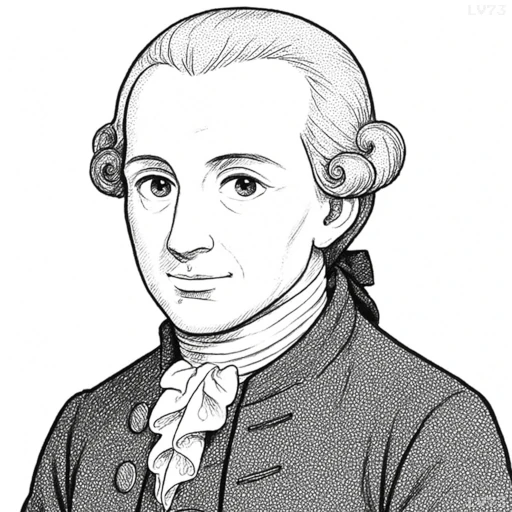“All the interests of my reason, speculative as well as practical, combine in the three following questions: 1. What can I know? 2. What ought I to do? 3. What may I hope?”

- April 22, 1724 – February 12, 1804
- Born in Germany (East Prussia)
- Philosopher
table of contents
Quote
“All the interests of my reason, speculative as well as practical, combine in the three following questions: 1. What can I know? 2. What ought I to do? 3. What may I hope?”
Explanation
In this quote, Immanuel Kant identifies three fundamental questions that guide human thought and action: what can I know?, what ought I to do?, and what may I hope? These questions encompass the full range of human inquiry, from understanding the world to determining how we should act within it, and finally, what we can expect or hope for in life. Speculative reason concerns the first question, addressing the limits and possibilities of knowledge—how do we come to understand the world and what can we claim to know? Practical reason deals with the second question, guiding ethical behavior and decision-making—how should we act, and what moral principles should we follow? Finally, the third question, what may I hope?, reflects our desires or aspirations for the future, especially in terms of moral outcomes or the possibility of happiness and justice. Kant is framing these three questions as essential to understanding both our epistemological limits and our moral duties, while also considering the possibility of a just or meaningful future.
In modern philosophical discourse, these questions are still relevant and continue to frame discussions on ethics, epistemology, and the human condition. For example, the first question (what can I know?) is central to the ongoing debates in philosophy of science, where philosophers grapple with what can be known through empirical means versus what remains speculative. The second question (what ought I to do?) is a cornerstone of moral philosophy and is at the heart of contemporary ethical dilemmas, whether in politics, bioethics, or personal decision-making. The third question (what may I hope?) touches on the existential questions about the meaning of life and our hopes for a just or moral future, particularly in the context of global challenges like climate change, inequality, and human rights.
Historically, this triad of questions is central to Kant’s critical philosophy, where he seeks to reconcile the limits of human knowledge (what we can know) with the necessity of moral action (what we ought to do), while maintaining a sense of hope that these pursuits can lead to something meaningful. Kant’s focus on these three questions arose during the Enlightenment when there was a strong push to understand the world through reason, while also addressing moral issues and individual autonomy. His work in the Critique of Pure Reason and the Critique of Practical Reason laid the foundations for modern epistemology and moral theory, and these three questions continue to inspire contemporary thinkers who explore the relationships between knowledge, ethics, and human aspiration.
Would you like to share your impressions or related stories about this quote in the comments section?
